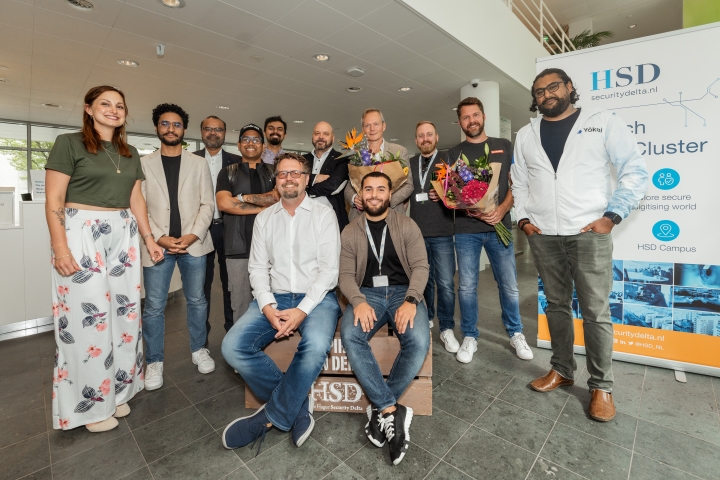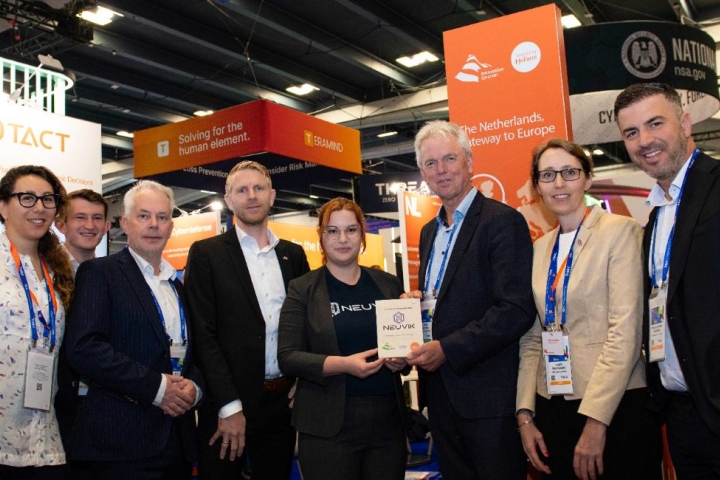From digital investigation and forensics to due diligence and cryptocurrency tracing, Cybertrace adds valuable skills and tech to the cybersecurity community

With a track record of two decades in the investigation & intelligence industries and with formal qualifications in policing, investigations, intelligence, security operations and security risk management, Cybertrace provides welcome relief to victims of cybercrime and cyberbullying. At their newly opened office at the HSD Campus in The Hague, Cybertrace is developing innovative technology to automate parts of its services.
Dan, founder, and CEO of Cybertrace is globally known as a pioneer in the investigation of cryptocurrency fraud. His team at Cybertrace maintains a strong reputation with public and private investigation services around the world. “Typically, we are hired by private individuals and companies for cyber investigation services, particularly where law enforcement is under resourced” explains Dan. Collaboration with law enforcement and the legal industry is often a natural component of their work. Cybertrace record the results of their investigations in comprehensive and official formats which can be handed to the police, lawyers, insurance companies or directly to the client. For example, in the case of cryptocurrency fraud, Cybertrace will trace the funds to the receiving cryptocurrency exchange. Only then can law-enforcement request the account holder’s identity records.
Standing out by excellence
Cybertrace is committed to upholding their high standards by investing substantial time into the validation of their methods, people, technology, and companies. Dan urges people looking for cyber investigation services to do their own due diligence before engaging an investigations or asset recovery company. “We may not be the cheapest, but we do deliver on our promise and always put our clients’ interest first,” says Dan. “Our highly qualified experts use proven methods and technology to identify offenders so that the client or police can recover and/or halt the inflicted damage.” And Cybertrace is very successful at what they do. “In a crowded landscape where all types of companies offer cyber investigation services, with little to no qualifications, we are dedicated to providing cyber-victims with high quality and reliable service which help them put their minds at ease.” Explains Dan.
Tracing ‘unidentifiable’ offenders
Cybertrace’s team has more than once solved cyber crimes that other companies couldn’t. Dan mentions a project for a Japanese publisher, whose video content was copied, complemented with translated subtitles, and published for free on a website owned by anonymous individuals. Using proprietary investigative techniques, the Cybertrace team forensically deconstructed the website including archived versions as far back as 2006. This process subsequently identified two individuals who operated the website, being a 20-year-old in Iraq and a somewhat older individual in Pakistan. “We were very pleased that we were able to identify the offenders and assist the infringed company regain control over their products, especially since several other companies had tried and failed before us.” Says Dan.
Often after the offenders are identified, Cybertrace’s work is done. “We don’t always know if the intention of the client was disruption, or if they went ahead to prosecute the offenders, but our reports clearly demonstrate how the individuals were linked to the websites which means our reports can be used in court, if required.” Concludes Dan. Other typical client cases include cyber bullying and extortion of celebrities, crypto and foreign exchange fraud and the leaking of confidential information by employees.
Non-invasive investigation
Cybertrace’s services are gaining traction across many industries due to their unique and highly effective approach, being its non-invasive in nature. “We see that more and more organisations, including insurance companies, are seeing the benefits of online investigations and are at least partially moving away from the more traditional, offline physical investigations.” Says Dan. “People are usually not very keen on having their privacy invaded by a person sitting in front of their house with a camera,” he explains. In some cases, however, a hybrid approach is essential for solving a case. “Across the world, we have partners that we collaborate with whenever offline investigation is required to complement our online work,” Says Dan, “and building on my experience with policing and traditional investigation, I know how those gaps need to be filled.”
Building scalable products
Cybertrace’s Dutch office is currently focused on using their extensive knowledge of cyber investigations and intelligence to create automated products. “While we are naturally also focused on gaining traction in the Dutch market for our current services, we selected this location at the heart of the Dutch cybersecurity community to increase the potential for collaboration with technology partners.” Explains Dan. “The Hague is internationally known as a hub for cybersecurity and all types of crime fighting, with a great deal of innovation. Also, there are many investors interested in companies like Cybertrace, so it is a pleasure to be part of this community.”
Once Cybertrace maintains steady traction in the European market, they intend to focus on EU funding. This will accelerate innovation and product development for solutions that benefit the law enforcement and financial industries.
Inviting more public-private collaboration
As mentioned earlier, collaboration with law enforcement agencies is vital for many of Cybertrace’s services; at a certain point they enter territory that’s only accessible to police. Dan is convinced that closer public-private collaboration is necessary for effective law enforcement, especially when it comes to cybercrime. While police resources and jurisdiction can have limitations which aren’t experienced by private companies, they do have access to secure information that can’t be accessed by private companies. It is for this reason that public-private collaboration is greatly needed for fighting cybercrime. For example, transnational investigations reach across national borders and outside the jurisdiction of the national police. Some cross-border cases are too small to involve Interpol or Europol. Also, Cybertrace has many insiders within the criminal networks involved in the scams and they can easily access insider information. Whereas most insiders won’t speak with the police. “Closer collaboration is first and foremost of benefit to victims due to the increased chance of successfully identifying and prosecuting offenders. The public and private investigation sectors will be more effective in assisting victims if police and private investigators work closer together.” Concludes Dan.



